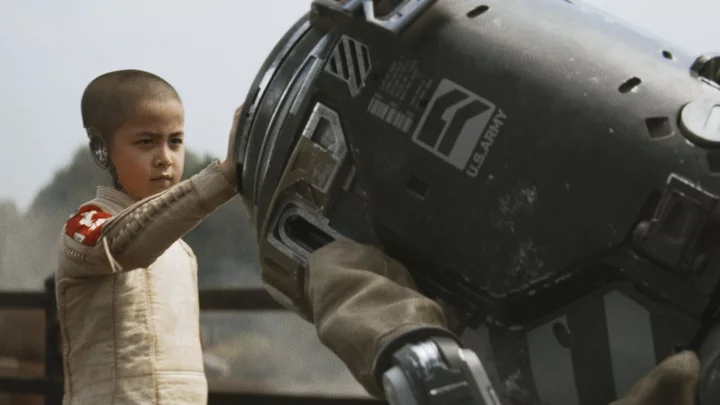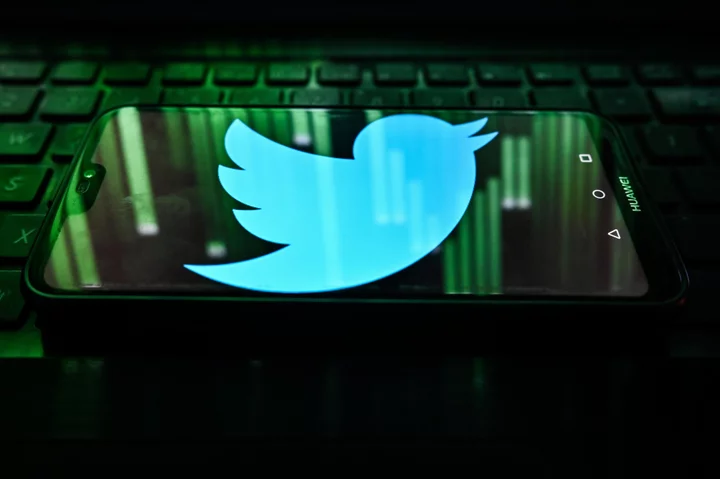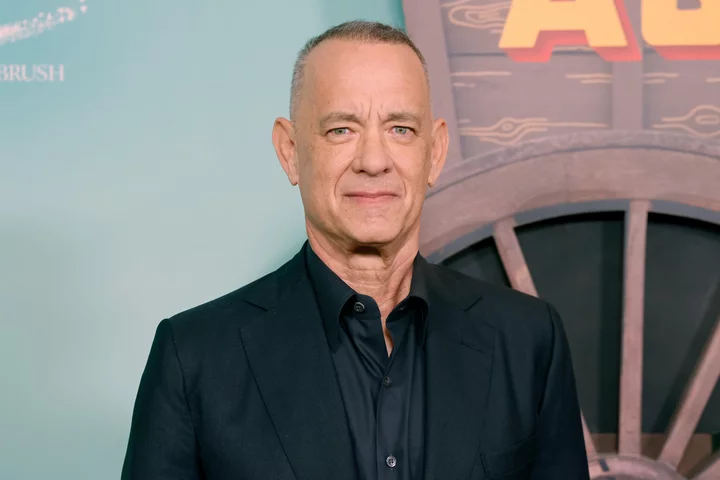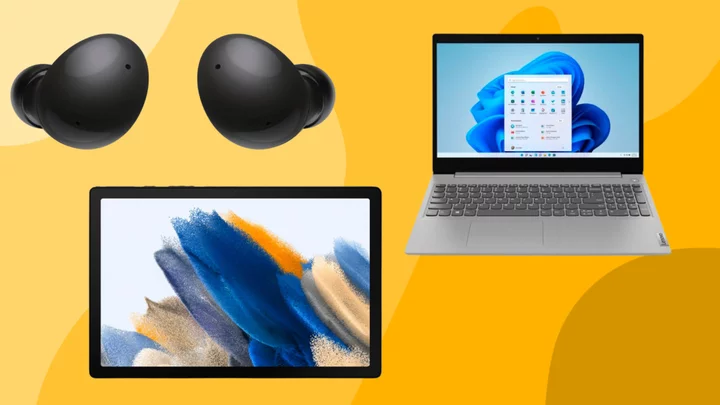Cyberpunk cityscapes. Rolling fields tilled by robots. Towering space stations. These are just a sample of the marvels that await in Gareth Edwards' The Creator.
In his latest film, the Rogue One director transports us to a future that is gorgeously realized, but not without its share of horrors. Here, humanity trades blows with artificial intelligence in an ever-escalating war for survival. That concept certainly isn't new to film, but given the rise of AI and Hollywood's current reckoning with AI technology, this on-screen battle feels more relevant than ever.
SEE ALSO: 27 films we can't wait to see this fallYet despite its subject matter being as hot a topic as it can get, The Creator isn't necessarily here to participate in the conversation around AI. Instead, the film uses AI more as a lens through which to examine people's capacity for both love and hate. It's an admirable project, albeit one The Creator and its underdeveloped emotional core can't entirely pull off.
However, what The Creator lacks in successful substance, it more than makes up for in technical execution. Stunning visuals and soundscapes make The Creator an instantly immersive experience, one that makes a great (and original!) addition to the sci-fi canon.
What's The Creator about?
John David Washington in "The Creator." Credit: 20th Century StudiosThe first few minutes of The Creator's play out like a vintage '50s commercial encouraging people to incorporate robot technology into their daily lives. As the robots become more skilled and intelligent, new variants emerge, including simulants — AI made to look like humans. But unlike the replicants of Blade Runner, for example, these androids boast elements that distinguish them from humans, including exposed machinery in the back of their head. (Just one of many impressive effects throughout the film.)
Despite the technological bliss the commercials promise, it's not long before the machines turn on their human overlords and wipe out Los Angeles with a nuclear strike. The attack kicks off a war between humanity and AI — at least on its surface. In reality, this is a war between the United States and the Republic of New Asia. There, humans, robots, and simulants live in harmony, complicating the US's black-and-white idea that AI are unfeeling machines.
SEE ALSO: 20 best sci-fi movies on Netflix to escape reality in 2023Central to this conflict is the mysterious creator of advanced AI, also known as Nirmata (Nepali for "the creator"). While Nirmata is worshipped as a messianic figure in New Asia, the US views them as a threat to be exterminated — especially since new intel suggests that Nirmata has created a new weapon capable of annihilating mankind once and for all. The US sends special forces agent Joshua (John David Washington) to kill Nirmata and destroy the weapon, but Joshua's mission changes drastically once he realizes the weapon is an AI child (Madeleine Yuna Voyles). She also seems to know where to find his wife Maya (Gemma Chan), whom he'd long thought to be dead.
The Creator is a stunning odyssey through the future.
NOMAD attacks in "The Creator." Credit: 20th Century StudiosWith a reunion with Maya on the line, Joshua tasks the child — nicknamed Alphie — with helping him find her. What follows is a breathtaking journey through the Republic of New Asia, as Joshua and Alphie voyage from the vivid green of rural farming villages to the neon industrialism of major cities. Cinematographers Oren Soffer and Greig Fraser capture the epic scope of these landscapes with beautiful clarity, and production design by James Clyne ensures each area of the world feels distinct yet lived-in. Even though you know these places aren't real, they're crafted with such care and detail that they can't help but feel as if they are.
The beings that populate this world are equally as captivating. Robots come in all different shapes and sizes suited to their function. (A particular standout is a massive tank of a robot whose only job is to run into combat and blow itself up.) Elsewhere, the simulants' combination of organic and mechanical components calls to mind the physical portrayal of AI in films like Ex Machina. However, the simulants' look is still distinctive enough — including the voids running through their skulls — so as to not feel overly familiar or derivative.
SEE ALSO: 'Divinity' trailer teases retro sci-fi thriller that would fit right in on 'MST3K'Another distinctive element of The Creator is the U.S.S. NOMAD, an American space station that lurks above New Asia. Its two long wings give it the appearance of an avenging angel, which isn't too far off given that it can rain down fire with the touch of a button. Each NOMAD attack plays out with chilling awe. Swaths of blue light single out its target, while foreboding sound design amplifies the dread of seeing destruction on such a large scale. If you don't know who the true bad guys of The Creator are before NOMAD fires, you definitely will once you see it in action.
What does The Creator have to say about AI?
Madeleine Yuna Voyles in "The Creator." Credit: 20th Century StudiosGiven NOMAD and the US's overt cruelty when it comes to terrorizing the people of New Asia, it's no surprise that The Creator comes down on the side of AI and the humans who live with it. But that sentiment is less a cry to embrace the technology of artificial intelligence than it is an encouragement to embrace and empathize with those we may see as the other.
To get us us to identify with its AI characters instead of fear them, The Creator emphasizes simulants' human physicality and robots' abilities to talk and express emotion. Alphie in particular proves key to this, as the film charts her first reactions to the world, childlike wonder included. What we see here isn't the artificial intelligence we're currently familiar with with programs like ChatGPT, but full-on artificial life.
SEE ALSO: Top Indian actor wins landmark case against AIIn New Asia, AI has created communities and cultural practices all of its own, although more often than not these traditions are shared with the humans who live alongside AI. As this joint human-AI culture clashes with the US's human-only, western-centric approach to the war, The Creator positions fear of AI as this world's version of xenophobia, or an altered form of anti-Asian sentiment.
It's a bit of a clumsy metaphor, especially since The Creator doesn't develop it much father beyond "hate is bad, but love is good." Other aspects of its AI portrayal prove equally underdone. When Joshua and other Americans discuss why the AI may have attacked LA in the first place, someone cites a rumor that AI wanted to steal their jobs. The line reads as a pointed reference to bigoted anti-migrant talking points, but totally ignores the threat AI really can pose to human workers. In New Asia, billboards encourage people to "donate their likeness" to simulants in order to support AI. The practice is eerily similar to film studios making body scans of extras. Yet any concerns about the likeness donations — and corporations owning said likeness — fall to the wayside to make way for plot-important simulant doppelgängers. At most, these are passive examinations of AI's role in our real world, used more as set dressing than anything else.
The Creator has a good heart, but the connection isn't always there.
John David Washington and Madeleine Yuna Voyles in "The Creator." Credit: 20th Century StudiosSimilarly underdeveloped is one of the most key relationships in the film: that between Joshua and Maya. Maya is Joshua's entire motivation, but we get frighteningly little of her beyond flashbacks where she and Joshua argue about AI or frolic lovingly on the beach. (The beach scenes see her wearing the universal uniform of dead movie wives: a flowing white dress.) While Chan and Washington do have sweet chemistry in the few scenes they share, Maya is so much more than her marriage to Joshua. Her connection to Nirmata is what drew the two together in the first place, yet the film fails to examine that connection or Maya's interiority in any more depth.
Luckily, the disconnect we see between Maya and Joshua is not present between Joshua and Alphie. The two start out in a classic "lone wolf and cub" trope — seen earlier this year in other sci-fi projects like The Last of Us and 65. Joshua hates AI on principle, so he's often aggravated by Alphie and first sees her as more of a tool to get to Maya. But as he spends more time with her, including having philosophical discussions about who gets to go to heaven, the more he begins to see her and the other AI as full-fledged people. (Of course, the trial by fire of being hunted by the US and New Asia certainly helps them bond as well.)
Washington nails Joshua's softer side as he becomes a surrogate father to Alphie, but he never loses sight of the action chops we saw on display in Tenet. Voyles is tremendous as well in her first-ever feature film role. She sweetly walks the line between the uncanny valley of AI and the innocence of a young child, maintaining that tricky balance throughout.
The strength of Washington and Voyles' rapport anchors The Creator even as a few of its other thematic elements lack weight. Add to that some incredible world-building and a third act that takes the film's stakes to new heights, and you get an ambitious, engrossing epic. The Creator remains a testament to sci-fi's capacity for wonder, terror, and genuine human connection — and we deserve more original films like it.
The Creator was reviewed out of 2023's Fantastic Fest. It opens in theaters Sept. 29.









